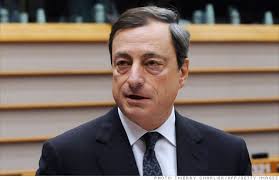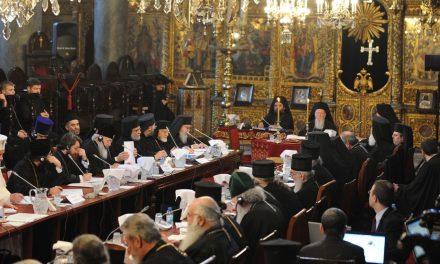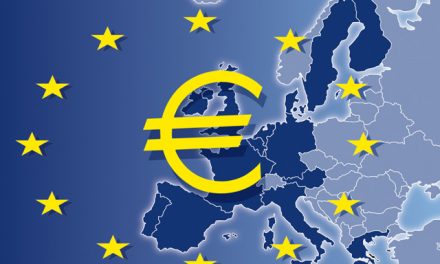By Jacob Funk Kirkegaard (PIIE)
Aas the global economy continues its upswing, central banks in advanced economies face the challenge of returning monetary policy to a level enabling them to combat the next cyclical downturn.
The recent selection of Jerome Powell, John Williams, and Richard Clarida to leading positions at the US Federal Reserve System, the reappointment of Bank of Japan governor Haruhiko Kuroda for a second term, and the promotion of deputy governor Yi Gang as governor of the People’s Bank of China (PBOC) all reflect policy continuity at three of the four major global central banks.
But top leadership transitions at the European Central Bank (ECB), as a multilateral institution, always have to contend with politics. This makes the selection process of the central bank’s new leadership in 2019 less predictable, particularly as it will be part of the ongoing negotiations among European leaders over further institutional reforms of the European Union and euro area.
JUGGLING NATIONALITIES AT THE ECB
The transition to new leadership has begun already with the appointment of Luis de Guindos of Spain as new vice president. Three other positions, including the presidency, will turn over in 2019—ECB chief economist Peter Praet of Belgium in May, Mario Draghi of Italy in October, and executive board member Benoît Cœuré of France in December.
As a multilateral central bank, the ECB’s institutional independence is unique. Its president must have broad monetary policymaking experience and cannot simply be “parachuted in” from a prominent policymaking position in another European or international institution like the European Investment Bank, the European Stability Mechanism, or even the International Monetary Fund. Such an approach would jeopardize the public’s perception of ECB’s independence. He or she will almost certainly come from among the governors of one of the euro area national central banks.
With the ECB president’s mandate of eight years, age plays a role in the selection process. Draghi was 64 when he became ECB president in 2011, Jean-Claude Trichet 61 in 2003, and Wim Duisenberg 63 when he began his half-term in 1998. The EU Council will be unlikely to select a candidate older than early/mid-sixties at the start of the mandate. Among the current euro area national central bank governors, this probably rules out Austria’s Ewald Nowotny, who will be 75 in late 2019, and makes Finland’s Erkki Liikanen, who will be 69 in 2019, and Belgium’s Jan Smets, who will be 68, highly unlikely to be successful.
A POSSIBLE GERMAN AT THE HELM?
Passports always matter in the European Union, and as ECB presidents have so far been Dutch, French, and Italian, the current national central bank governors from these three countries face very high political obstacles. Geographic rotation among the largest euro area members would instead dictate that it is “Germany’s turn” in 2019. This makes Jens Weidmann, current Bundesbank president and member of the ECB governing council since 2011, the strong frontrunner to replace Draghi. While a number of other German economists might be eminently qualified for the job, there is no other German candidate at the right age and with similar monetary policy experience. In addition, Weidmann was a top economic aide to German chancellor Angela Merkel from 2006 to 2011, prior to becoming president of the Bundesbank.
Weidmann’s record of opposition to many of the ECB’s necessary and expansionary monetary policy measures during the euro crisis, including quantitative easing, may give pause to some macroeconomists. Yet his euro crisis era rhetoric can also be described as part of the generally effective German “good cop/bad cop” crisis negotiations routine between Chancellor Merkel, on the conciliatory side, and the perpetual hawks Wolfgang Schäuble and Weidmann. And having a president who is a firm believer in the ECB’s single inflation target mandate—given how far headline inflation is from the close to but below 2 percent target—might be less hawkish than often assumed.
EU leaders’ concerns about Weidmann’s institutional loyalty to the ECB are likely to be moderated by the Bundesbank president’s lengthy record of studiously avoiding public deviation from ECB policy. Even as Weidman frequently clashed with the current outgoing leadership of the ECB, EU leaders may well be content that he can adapt to the new consensus building demands expected of an ECB president, rather than just continuing to be a national central bank president who can safely express loyalty to his own nation’s monetary policy preferences during a crisis knowing the governing council will outvote him in the end.
WHAT ABOUT GENDER BALANCE IN THE ECB?
One complication arising from a Weidmann ECB presidency relates to gender imbalance. A German at the ECB’s helm would force the executive board’s only female member, Sabine Lautenschläger, to resign. With the world’s most powerful woman, Angela Merkel, backing Weidmann’s candidacy, gender balance on the ECB executive board itself is not a prohibitive obstacle. The ECB would simply have to find women to replace Praet and/or Cœuré next year. And rotating both the Italian and French representatives off the executive board in 2019 also makes it likely that new national representatives from these two big member states will be appointed.
The recent appointment of French president Emmanuel Macron favorite Sylvie Goulard to deputy governor of the Banque de France suggests that France may promote her nomination as a female candidate to the ECB. But another strong candidate could be Hélène Rey, as one of several prominent female French macroeconomists. If Macron does nominate Goulard for the ECB, Italy might decide to go for the chief economist position, in which case the former head of ECB research, Italian Lucrezia Reichlin, might be difficult to oppose. This would then leave central bank of Ireland governor Philip R. Lane, the erstwhile Irish candidate for ECB vice president, as a candidate to take over Lautenschläger’s portfolio on the executive board and as vice-chair of the supervisory board of the Single Supervisory Mechanism.
HOW EURO AREA REFORM POLITICS AFFECT THE ECB TRANSITION
Lastly, the politic situation guarantees that the ECB presidency will be part of the broader negotiations between first and foremost the French and German governments in the coming months about a new reform of euro area institutions.
Here proponents of the most ambitious euro area reform possible should cheer for a Weidmann ECB presidency, as Macron would expect Merkel to give in to some of his other reform demands as an implicit quid pro quo. Trading an ultimately temporary German ECB presidency for far more permanent concessions from Berlin on the institutional future of the euro area and the European Union is an exchange all supporters of European integration should support—especially now, as Merkel faces increasing unrest among her more conservative backbenchers in the Christian Democratic Union and the Christian Social Union.
Who would be better positioned than a German ECB president to calm the unspecified and typically unsupported fears among these members of the Bundestag about “German taxpayers’ money and Europe”?



















